Frequently Asked Questions
With the loss of a loved one comes many questions about funerals, and the process can feel overwhelming. With so many different options to go through and consider, it can be extremely difficult for the grieving to find adequate resources, and that is why we created this comprehensive guide to answer some of the most common questions about funerals, pre-planning, burials and more.
If you have further questions or require additional information, please do not hesitate to contact us for assistance.
What is a funeral?
A funeral is a ceremony for a deceased person prior to burial or cremation. A funeral gives the opportunity for family and friends of the deceased to gather and mourn the passing of their loved one, to share cherished memories and celebrate their life. A funeral is a vital first step to help the bereaved heal after the loss of someone special.
What type of service should I have?
If no pre-arrangements have been made, the type of service is entirely up to you. Services are usually held at a funeral home or a place of worship. There is a wealth of different services, ranging from a traditional religious or military service to something a little more non-traditional. Our funeral directors are more than happy to work with you to figure out what would be the most appropriate.
Can I personalize a funeral?
Of course you can, in fact more and more people are opting for a more non-traditional personalized service. There is no right or wrong way to celebrate somebody’s life. There are many unique ways to celebrate life, let the funeral director know exactly what your desires are and they will honor your wishes.
Do we need to have an obituary notice and what is included in one?
It is highly recommended to have an obituary notice that’s either placed in a local newspaper, or placed online. An obituary lets the public know that a death has occurred, and gives them information about the service. Obituaries generally include the deceased’s full name, age, city and date of birth and the city they were living in when they died. It also includes the name of the deceased’s spouse, along with the names of anyone else significant in their lives, such as parents, children or grandchildren. Space may be limited in a newspaper obituary, but you may include a little blurb on the life and legacy of the deceased. An online obituary or memorial website offers you the chance to add a lot more about the deceased.
Who are funeral directors and what do they do?
Funeral directors are in charge of all the logistics following a death. They complete all the necessary paperwork, make arrangements for the transportation of the body, and put into action the choices made by the family in regards to the funeral service and the final resting place of the body. Beyond the logistics, funeral directors are there to provide moral support and guidance for someone coping with death.
What happens if the death occurs in the middle of the night or on the weekend?
We are here to help, funeral directors are available 24 hours a day, 7 days a week, and 365 days a year.
What if a death occurs away from my home town?
We are here to help, we can arrange to have the remains transported home from anywhere in the world. We will assume responsibility and make the proper arrangements to have the remains return to the community.
How soon after death must an individual be buried?
There is no law that states a specific time from for burial. Considerations that will affect timeline include the need to secure all permits and authorizations, notification of family and friends, preparation of the burial site and religious considerations. Public heath laws may have limitations on the maximum length of time allowed to pass prior to final disposition. Contact your local funeral provider for more details.
What is embalming and what purpose does it serve?
Embalming sanitizes and preserves the body; it also slows down the decomposition process and helps restore the appearance of the body damaged by traumatic death or illness. Embalming gives time to the family of the deceased to arrange a service, and allows the family the option of having an open-casket viewing.
Do I need to have an embalming?
No. In fact some religions forbid embalming. However, some countries require embalming by law in order for remains to leave or enter the country. If it is not against your religious custom, embalming is recommended, especially if there is an extended time between death and burial or cremation.
How much does a funeral cost?
The cost of the funeral varies depending on the wishes you have. In the US the average cost of a funeral is between $5,000-$10,000. The cost includes all professional services including transportation, embalming and other preparations, the use of a facility for the ceremony, and the purchase of a casket or urn.
Why are funerals so expensive?
Funerals are labor intensive and require a lot of work from a lot of people. The cost of a funeral goes beyond merchandise such as caskets, it includes the services of a funeral director in making the necessary arrangements, filling out forms, and dealing with all the other people involved in the death (doctors, lawyers, insurance companies). Funeral directors work an average of 40 hours per funeral. The cost of operating a funeral home is factored into the cost as well. Funeral homes are a 24 hour operation, with extensive facilities that need to be maintained and secured.
Should I pre-plan my funeral?
Pre-planning your own funeral lifts the burden from your loved ones by relieving decision-making and financial pressure during what will be a time of grief and emotional stress.
What are the benefits of pre-planning my funeral?
Between 70 and 75 decisions are made within the first 24-48 hours of death. It’s difficult to think rationally while making so many decisions within days of losing someone, pre-planning gives yourself, family and friends peace of mind. Additionally, pre-planning gives your loved ones direction regarding your final wishes. It’s easy, anyone can do it, and you can change your mind anytime.
What are some of the things I can pre-plan about my funeral?
Some of the things you’ll be able to choose while pre-planning your funeral include whether or not you want to be cremated or buried, the style of casket or urn you’d like, what style of service, your burial garments, your memorials, and more.
What options are available besides ground burial?
Besides ground burial, some cemeteries offer interment in lawn crypts or entombment in mausoleums. In addition, most cemeteries provide choices for those who have selected cremation. These often include placement of cremated remains in a niche of a columbarium or interment in an urn space.
What is Entombment?
Unlike ground burials, entombments are above-ground burials. The body or cremated remains are typically placed within a crypt, tomb, mausoleum, or columbarium, which is then sealed. These structures are often made of marble or granite and can house the remains of one person or multiple persons.
What Are My Entombment Options?
- Tomb - A tomb is not necessarily a place of interment but rather anything that contains the remains of the deceased, such as an urn, special container, or casket.
- Crypt - Crypts are vaults that house a casket. They are usually found below churches or within private or public mausoleums.
- Mausoleum - A mausoleum is an external monument containing several crypts which house the remains of those who have passed away. Unlike columbariums, which are designed to house urns containing ashes, mausoleums are meant to inter traditional caskets. Using mausoleums is a form of above-ground burial.
- Columbarium - A columbarium is a structure that houses the cremated remains of the deceased. Each urn of ashes is stored in a separate space called a “niche,” some of which can be large enough to hold several containers.
What is the Entombment Process Like?
The entombment process can be complex or simple depending on what your loved one wanted or what you decide to do. Some people prefer entombment within an indoor building, while others prefer an outdoor crypt. Some families even choose to have a custom-made structure designed for their loved one.
What Are Some Other Options Besides Entombment?
One of the most common options are ground burials. Family or religious traditions are often a factor for choosing burial. Several decisions need to be made, such as whether the deceased needs to be embalmed, the selection of a casket and vault, and what cemetery to use.
What is Cremation?
Cremation is a method of dealing with a loved one’s physical remains by using high temperatures to transform the body to ash, rather than having a traditional burial or entombment.
Please know that cremation is only the mode in which you or your family have chosen to deal with the physical remains of a loved one, and that this decision doesn’t limit the ways in which you can honor their life. As such, we sincerely suggest that you have a funeral or memorial service, because your need for such a healing experience is not lessened by the decision to be cremated.





